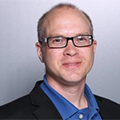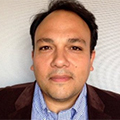It’s time to clear up the crippling misconceptions about PMP certification and eligibility. Get advice from five people who succeeded at addressing the “leading and directing time” requirement.
In short:
NO, the PMP (Project Management Professional) certification is not only for software developers, engineers, and IT professionals.
NO, the words “project manager” don’t need to appear on your resume or CV for you to be eligible.
NO, leading one project from start to finish is not required for “leading and directing” experience.
While more than 720,000 people worldwide have earned the PMP certification, easily twice as many read the PMP eligibility requirements and gave up before they started. In particular, the requirements for 4,500 to 7,500 hours of experience “leading or directing projects” has been known to cause paralyzing fear, particularly for the non-fulltime-project managers of the world.
Let’s take fear out of the equation and replace it with some logic and real-life success stories.
To start with: A quick calculation shows that 4,500 – 7,500 hours equates to 2.2–3.6 years of experience (based on 40 hours per week) over the past 8 years. That’s not so scary, is it?
But what if you’re not sure if you have any project management experience? If no one has ever called you a project manager, and it doesn’t appear as a title on your resume, is there any hope for you? Absolutely. These five stories from five successful PMPs who were once in your shoes may inspire and comfort you.
Supply Chain
 Roberta McPhail, CPIM, CIRM, CSCP, CDDP, PMP
Roberta McPhail, CPIM, CIRM, CSCP, CDDP, PMP
APICS Master Instructor
British Columbia, Canada
Why did you pursue the PMP?
The primary reason that I chose to earn the PMP was to gain recognition as I was entering into the world of consulting. I actually ended up learning far more than I thought I would, as the breadth of the body of knowledge was quite extensive. It greatly enhanced my practical experience.
How did you handle the PMP eligibility requirements?
I certainly had reservations about the eligibility requirements. I don’t have a degree, which meant I needed 7,500 hours of project experience. I took the time to do more research and think about the “projects” I did, considering PMI’s definition of a project as “a temporary endeavor undertaken to create a unique product or service.”
After looking through my experience for the past 8 years, I realized I had more than enough hours. As a functional leader in supply chain, implementing process change is continuous, and these activities certainly qualify as hours “in project.” For example, I implemented planning processes for an executive group. This included setting up spreadsheets and establishing a monthly meeting schedule to update the planning information. While I thought it was a “soft” project, it qualified.
What’s your advice for aspiring PMPs?
Use a reputable training provider. Your time and money is too valuable to waste on a fly-by-night trainer. An overwhelming pool of providers exists. With proper preparation and training, the PMP exam is very achievable.
Marketing
 Andy Basford, PMP
Andy Basford, PMP
Digital Marketing Manager
Washington, DC
Why did you pursue the PMP?
When I earned the PMP, I was a Marketing Technology Manager. I was at a point in my career where I needed to start to look for a new job. While I wasn’t a project manager in title, I did have a lot experience managing marketing and technology projects. The PMP seemed like a logical credential to pursue to differentiate me as a job candidate.
How did you handle the PMP eligibility requirements?
My course instructor helped clarify my eligibility for the PMP exam. PMI has a pretty broad definition of what constitutes a project. It can be anything that hasn’t been done before and has a fixed end point. Basically, anything with a specific deliverable and deadline can be considered a project.
Two types of projects made up the bulk of my leading and directing experience: marketing technology implementations (specifically, website enhancements and a large scale redesign project) and marketing collateral (brochures, flyers, mini-sites). The management of the process for any of these types of deliverables counts as leading and directing.
What’s your advice for aspiring PMPs?
If you decide to sit for the exam, make sure to put your time into studying. The exam covers a lot of material, and the questions are written to be deliberately misleading. Taking lots of practice exams helps you to understand what you’ll see on the test.
Publishing
 Chad Dykoski, PMP
Chad Dykoski, PMP
Writer
Eagan, MN
Why did you pursue the PMP?
I work in a project-driven environment with a results-driven culture. I write training materials with tight deadlines, so I felt the PMP would help me estimate my time better and stay on deadline.
How did you handle the PMP eligibility requirements?
Like many others, I thought I was ineligible for the PMP after I read the requirement for hours of leading and directing. My experience was limited to small projects, often spanning months at a time; I was either the lone team member, or one of a few team members but not the actual project manager.
The challenge is to simply frame your experience it in a way that uses PMI terms. The turning point for me was when I realized that although I wasn’t a project manager in title, I was in practice. I was given the autonomy to lead content development projects using my planning and executing skills throughout. I determined what needed to be done, set schedules, and saw them through to completion. The bulk of my leading and directing time came from meetings with subject matter experts, guiding them towards our end goal. I also developed tools that could be used on future projects.
What’s your advice for aspiring PMPs?
The best tip is to fill out your application in a way that you can show it first to whomever you are listing as your supervisor(s) like a printout or email. Ask if they would sign off on how you are representing your work if audited. If they say yes, then just submit the application and leave it in PMI’s hands. If you are audited, you won’t have to worry about how your supervisors will respond.
Training
 Alejandro M. Zeballos, PMP
Alejandro M. Zeballos, PMP
Training Specialist, Accenture
Santiago, Chile
Why did you pursue the PMP?
I pursued the PMP certification for several reasons. First, I’m involved in different projects at work all the time, so I wanted to gain skills and learn the tricks to manage those projects more professionally. Also, as part of a global virtual team, it made sense for our team to adopt a common methodology and vocabulary, and to implement a project management approach for our global initiatives. By earning the PMP, I could better understand the needs and connect with the people we support. Finally, the PMP is a highly-regarded certification in the IT field.
How did you handle the PMP eligibility requirements?
The PMP certification seems daunting at first and it is easy to be discouraged by the eligibility requirements. I guess I was only sure of my eligibility after I took the time to work on the application. A colleague shared a template that helped me identify the projects and calculate the hours prior to starting PMI’s online application.
Formally, I’m not officially a project manager. I do manage projects as part of my work, but not exclusively. I had a range of “leading” experience on my application. For example, I used experience where I was coordinating rather than leading a project. Using “Administrator” as the Project Role on the application, I had no hours on the Initiating Domain (as I was not involved on the early steps of the project) but had many hours under the Executing and Controlling domains. The bulk of my leading and directing experience came from championing a global program that provided high-end industry certifications to an identified pool of top performers. As a project leader, I had to work with stakeholders to obtain their support for the project, define the certifications in scope, develop project guidelines, presentation and launch, propose final list of candidates, manage the global budget, and monitor project performance to closure.
What’s your advice for aspiring PMPs?
Prepare a realistic plan and start with a target date for your exam so you have a deadline. Also, give yourself enough time to prepare without cramming. There is a lot of material to cover, and you need time. To do this, pick good, complete training materials and be consistent with your preparation. Mixing resources from various sources will get you confused. Finally, memorize the formulas!
Retail Service
 John Gibson, PMP
John Gibson, PMP
Director, Education & Projects
Bethesda, MD
Why did you pursue the PMP?
I was looking for professional credentialing opportunities that would both help support work that I was doing in the retail service industry, and also open the door to additional opportunities within my organization.
How did you handle the PMP eligibility requirements?
I was a district manager and did not have what I would call traditional project management experience. So I thought that I would need to sit for the CAPM before progressing to the PMP exam. After seeking advice from a colleague who had already earned the PMP, I realized I had the right experience after all.
My experience included leading education, training, professional development, and retail office renovation and relocation projects. Of these types of projects, the bulk of my experience came from professional development and training projects for internal personnel. For example, I oversaw the planning and execution of an internal tax training school that operated over a six month period.
What’s your advice for aspiring PMPs?
First, do a self-analysis on where you are with your career, what you hope to gain by earning the certification, and whether the skills and knowledge demonstrated by passing the exam reflect the direction you want to go with your career.
When working through the material, focus on how you would implement project phases and tasks to the actual projects you are working on, as laid out in the PMBOK. Also, focus your studies on learning the inputs and outputs of each project phase and where that phase fits into the each area of knowledge. Finally, know your formulas and use your time in the testing center before your test begins to write as many of them as you can on your scratch paper.
If you feel daunted by that “experience” requirement, it’s comforting to know that you’re not alone. Many PMPs questioned their PMP eligibility early on in the process. The key is to rethink and redefine your experience.
- You Thought You Couldn’t Get a PMP without “Project Manager” in Your Title. You Were Wrong. - June 10, 2016
- 4 Study Tips to Increase PMP Success - April 29, 2016




